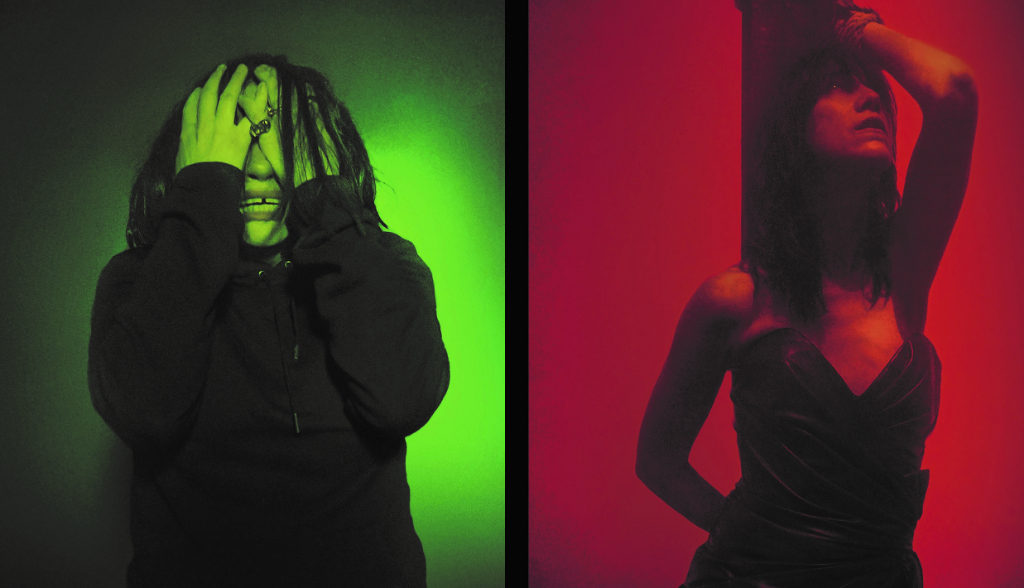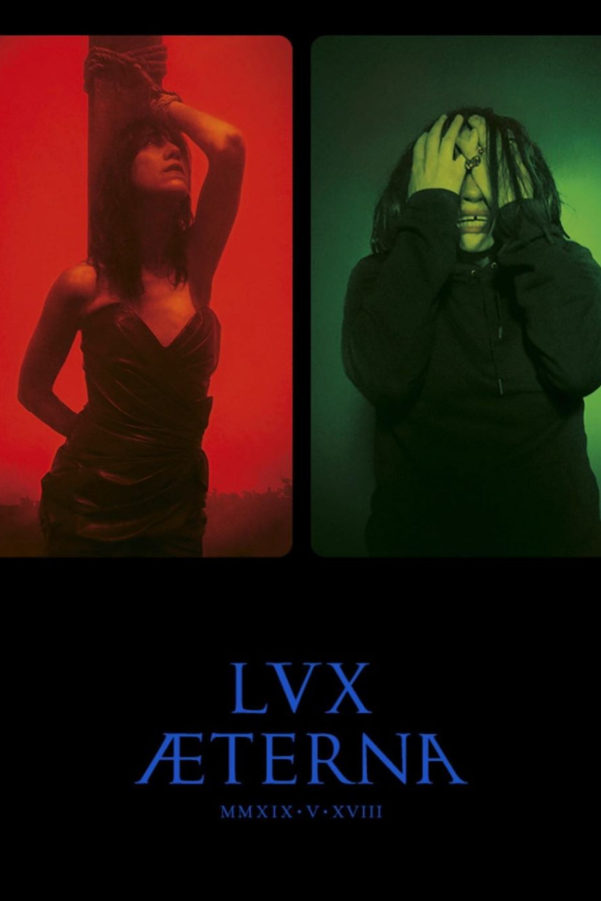Lux Æterna

It’s a bit embarrassing to identify as a fan of Gaspar Noé. An enfant terrible who emerged from the New French Extremity movement at the turn of the 21st Century, the director’s films are often simplistic and stupid; he has a tin ear for dialogue and works overtime to annoy and upset his audiences (his 2002 film Irréversible, a story of rape and violence told in reverse-chronological order, was one of the most controversial films of the decade, inspiring mass walkouts and even fainting spells). And yet, he is so self-assured, so possessed with an uncanny sense of what is and what is not “cinematic”, that this critic finds his work weirdly irresistible.
Lux Æterna – a pint-sized experiment clocking in at 50 minutes, originally an advert for Yves Saint Laurent but still very much a proper movie – could be paired with Climax, Noé’s film from last year’s Cannes, about a party between dancers that collapses under the influence of drugs – defined by a constant sense of movement that eventually crosses over into the realm of disturbing performance art. The director’s latest feature is also about the chaos behind a compelling performance, albeit in an environment closer to his heart: a film production.
Charlotte Gainsbourg and Béatrice Dalle play themselves as the star and director, respectively, of a project about witches being burnt at the stake. Their opening, amiable conversations about the humiliations they’ve endured over their careers – and how these have nonetheless led to interesting films – gives way to a nightmarish portrayal of a set in chaos. Noé’s camera zips around the space, often in split-screen, taking in scheming producers, disgruntled actors, frantic crew members looking for some semblance of order and a director of photography, Max (Maxime Ruiz), with an ego the size of a cathedral.
The set they’re working on is ridiculous: three stakes against a flaming green-screen backdrop, with extras carrying lit torches. Yet once Gainsbourg and her fellow witches are tied to their stakes, the backdrop malfunctions, and the final stretch becomes an assault on the eyes and ears. Noé includes an aside about Carl Theodor Dreyer’s Day of Wrath, describing how a shot of a horrified woman being burnt at the stake was made more effective by her having been up there for over two hours before shooting.
Likewise, the unpleasant convulsive atmosphere leads Gainsbourg to panic as she realises she’s stuck up on the stake – and it’s then that Max encourages her to lean into her fear. And the result is a captivating performance. Noé’s argument regarding creative cruelty may strike some as reductive, even offensive, but it’s presented in such a confident and tongue-in-cheek manner – and in a way that honestly acknowledges how much art was probably a nightmare to make – that this critic is inclined to give the director the benefit of the doubt, and view it as a thrilling essay on the pleasure and pain of his own creative process.
Sam Gray
Lux Æterna does not have a UK release date yet.
Read more reviews from our Cannes Film Festival 2019 coverage here.
For further information about the event visit the Cannes Film Festival website here.

























Facebook
Twitter
Instagram
YouTube
RSS